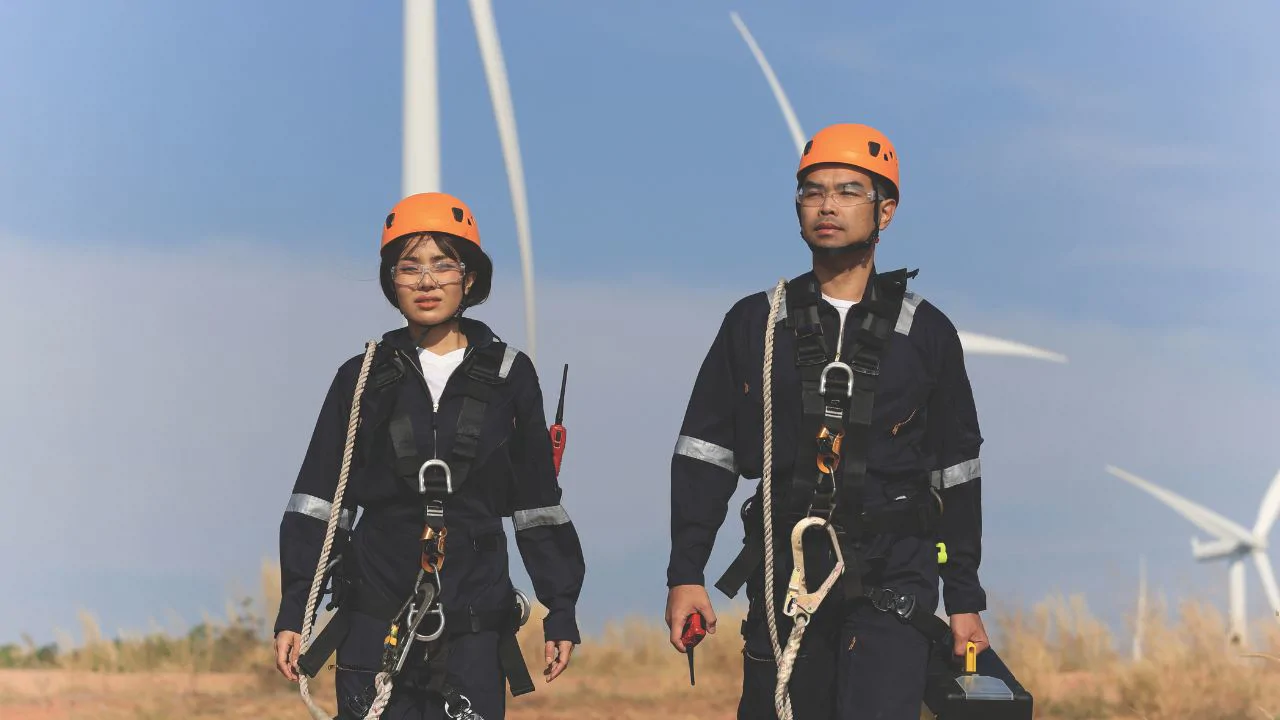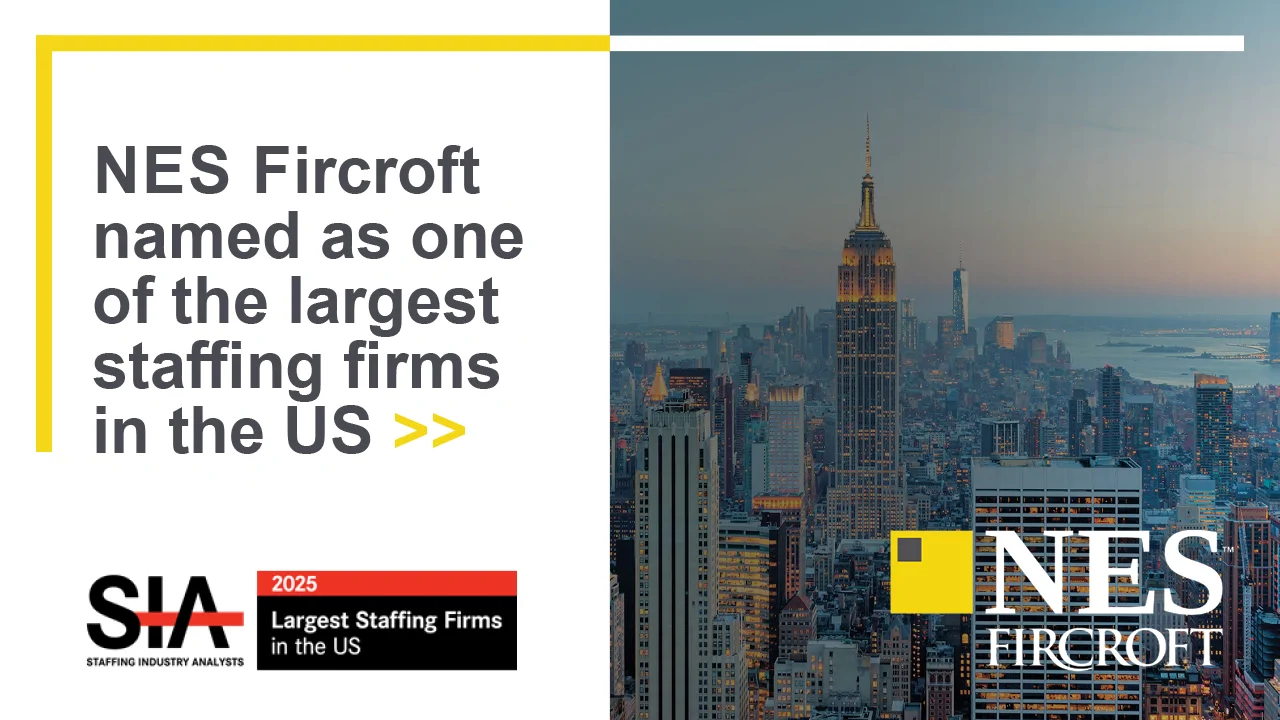How Can We Solve the Mining Industry Skills Shortage?
13 Feb, 202410:20The mining industry is currently facing a significant challenge - talent shortages. As the s...

The mining industry is currently facing a significant challenge - talent shortages. As the sector gears up for growth after a period of decline, it faces the harsh reality of an ageing workforce, a lack of new talent, and a breakdown in the executive replenishment cycle. This blog will explore the reasons behind these talent shortages, the implications for the mining industry, and potential solutions to address this critical issue.
The Current Global Workforce
According to research conducted by the Australian Government, only 2.1% of workers have their main job in mining, with an expected future growth of only 5.9%.
In the next 10 to 20 years, numerous industries worldwide, including mining, will be confronted with three major issues related to their workforce:
- There is an ageing workforce, with experienced personnel from the baby boomer generation nearing retirement.
- It takes significant time to develop technical expertise and knowledge within many industries.
- A lack of new talent is entering the industry, further exacerbating the talent shortage.
The average age of employees in the energy, utilities, and mining sectors is considerably higher than the average age of the general workforce. For instance, in the mining industry, the average age is 46.5 years old, compared to the general workforce average of 40. Despite warnings about the ageing workforce, many companies still need to grasp the impact it will have on their future fully.
Respondents to the Workforce Experiences Survey conducted by the Mining Industry Human Resources Council said that the fly-in-fly-out requirements of mining work, its remote nature and irregular hours and shifts are top factors that lessen its attractiveness. Balancing work with care responsibilities and personal health also deterred workers.
Demand for critical components used to make batteries for electric vehicles and smartphones, such as lithium, cobalt, and copper, is also rising. According to Benchmark Mineral Intelligence, this means that globally, at least 384 new mines will need to be built to meet the demand for electric vehicles by 2035.

The Challenge of Attracting Young Talent
The mining industry needs help attracting young talent. Despite being one of the best-paid industries, engineering graduates are opting for other fields. The industry's reputation as an unstable employer, coupled with the remote locations of many mine sites, dissuades young professionals from pursuing careers in mining. Additionally, working in remote locations with long hours and the threat of job loss during downturns is unappealing to the next generation of workers.
However, the mining industry offers rewarding careers for those willing to embrace the challenge. The sector must dispel misconceptions and highlight the opportunities available to young professionals. Mining companies should focus on promoting the industry's stability, attractive compensation packages, and the potential for career growth.

The Breakdown in the Executive Replenishment Cycle
Another critical challenge the mining industry faces is the executive replenishment cycle breakdown. While new talent entering the workforce may have limited on-the-job experience, retiring executives and senior management have spent decades honing their skills. Many middle and lower-level management have also left the industry altogether, leaving a significant gap in expertise and qualifications.
The time required for someone to gain the necessary experience and knowledge to move into upper management roles is substantial. The industry must find ways to attract, retain, and develop young professionals who can fill these critical positions.
The Implications for the Mining Industry
The talent shortages in the mining industry have far-reaching implications. Mining companies will need a robust pipeline of skilled professionals to meet production targets and strategic objectives. The talent shortage is already hindering the industry's ability to keep up with demand for rare earth minerals, such as lithium, cobalt, and copper, essential to produce electric vehicles and smartphones.
The mining industry must adapt and find solutions to reverse the talent shortage trend. Failure to do so will result in missed opportunities, increased costs, and a lack of innovation. Mining companies must consider talent as a strategic pillar alongside safety, production, and cost. Elevating talent as a top priority will require continuous effort in developing a talent strategy, aligning it with long-term mine plans, and tracking its implementation at the highest executive level.
Solutions for Addressing Talent Shortages
To address talent shortages, mining companies can focus on several key areas:
Treating Talent as a Strategic Pillar
Mining companies must recognise the value of talent and invest in its development. As production optimisation receives significant attention, talent should be a key focus for executives. A robust talent strategy is essential, including workforce planning, talent requirements, and critical role identification. By quantifying the impact of talent on the business and aligning it with long-term mining plans, mining companies can attract and retain the right professionals.
Understanding Employee Preferences and Needs
To address talent shortages, mining companies need to understand what employees truly want. There often needs to be more clarity between what managers believe employees value and what employees prioritise. Conducting surveys and focus groups and analysing sentiment data can provide valuable insights into employee preferences, frustrations, and areas for improvement. Investing in solutions to address infrastructure challenges and offering flexible work arrangements can make the mining industry more attractive to young professionals.
Workplace culture plays a more significant role than ever when a candidate is considering whether to stay with a company or in the industry. Organisations must set informed equality, diversity and inclusion goals and act on them from management level to operations.

Investing in Skills Development
Mining companies should broaden their definition of capability beyond technical competence. Leadership skills, business acumen, cross-functional expertise, and digital literacy are essential for future success. By investing in skills development programs, mining companies can attract and retain top talent. Leveraging analytics in recruitment can help identify the skills that lead to success in specific roles, enabling companies to target suitable candidates.
Expand to a Global Search
With the demand for skilled workers as high as ever, sourcing from other countries is a lucrative solution for employers. Expatriates can possess sought-after skills that may be unavailable locally. Working with a company that can provide EOR solutions can make this more manageable for companies needing talent quickly.
Promoting the Industry's Value
Mining companies must enhance their industry's value proposition to attract young professionals. Highlighting the stability, competitive compensation packages and opportunities for career growth are essential. Promoting the industry's commitment to environmental, social, and governance (ESG) issues is also crucial, as younger generations place significant importance on sustainability and ethical practices. By showcasing the industry's positive aspects, mining companies can overcome negative perceptions and attract talented individuals.
How we can help solve the talent shortage
The mining industry is facing a talent shortage. To address these challenges, mining companies must prioritise talent as a strategic pillar, understand employee preferences, invest in skills development, and promote employee value propositions.
The demand for skilled engineers and contractors working in mining is as high as ever, and companies require talent to ensure the industry's future.
NES Fircroft's expert recruitment teams have offices in over 45 countries with cultivated talent pools. Our sector-specific teams can source engineering and technical professionals for global roles with some of the biggest names in mining and engineering.
With decades of experience in international expansion, we can also help you hire employees from across the globe quickly, compliantly and with minimal risk.
Contact us to discuss how we can support your workforce needs.









